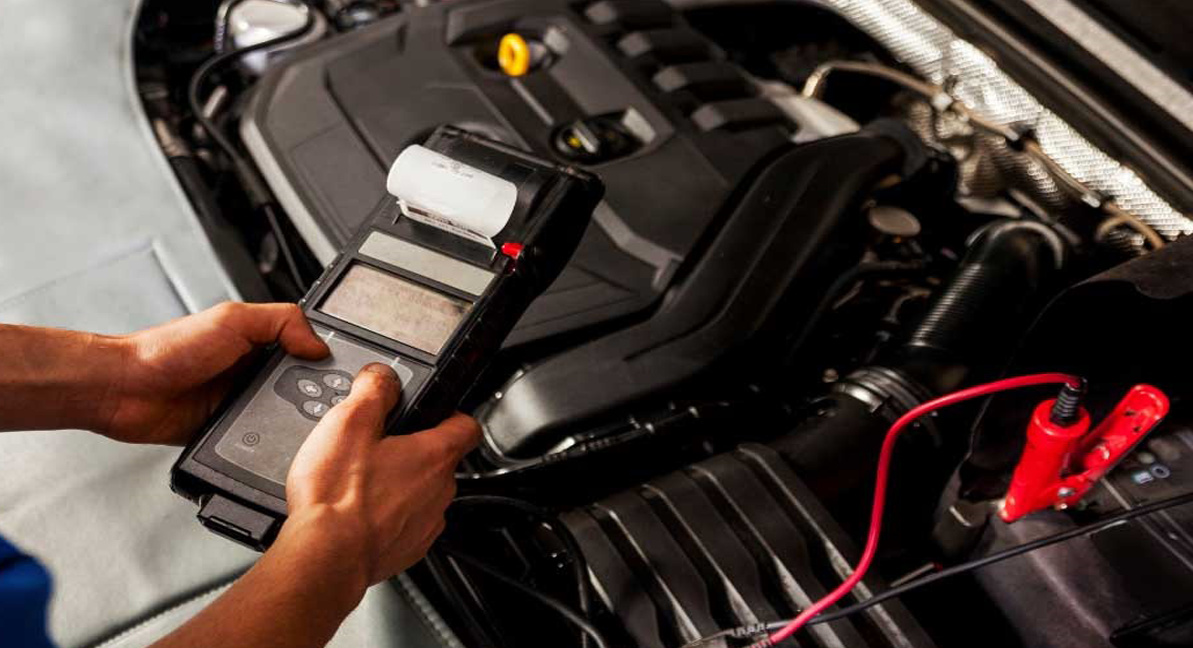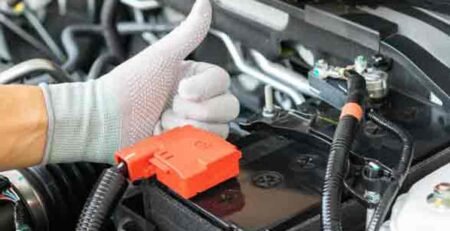Maximizing Power: A Battery Expert’s Guide to Prolonging Your Car Battery Life
classicpowerbattery.com2024-03-20T12:36:13+00:00Introduction
As battery experts, we at Classic Power Battery Trading understand the critical role a car battery plays in the overall performance of your vehicle. A well-maintained battery not only ensures reliable starts but also contributes to the longevity of your vehicle’s electrical components. In this guide, we will share essential tips on how to extend the life of your car battery, helping you maximize its power and reliability.
1. Choose the Right Battery
The journey to a longer car battery life begins with selecting the right battery for your vehicle. Factors such as size, type, and cold-cranking amps (CCA) rating are crucial. Consult your vehicle’s manual or seek advice from a professional to ensure you choose a battery that meets your car’s specifications. You can also refer to our earlier post, “The Road to Power: A Comprehensive Guide to Choosing the Best Car Battery” to get a quick insight.
2. Keep It Clean
A clean battery is a happy battery. Over time, corrosion can accumulate on the battery terminals, impeding the flow of electricity. Regularly inspect the terminals for any buildup and, if necessary, clean them with a mixture of baking soda and water. Ensure that the battery is disconnected before cleaning to avoid any electrical hazards.
3. Secure Proper Installation
A loose or improperly installed battery can lead to vibrations, which, in turn, can damage the internal components and shorten its lifespan. Make sure the battery is securely fastened in its tray, and the terminals are tightened appropriately. If in doubt, seek professional assistance to ensure proper installation.
4. Mind the Temperature
Extreme temperatures, whether too hot or too cold, can take a toll on your car battery. In colder climates, consider investing in a battery with a higher CCA rating to ensure reliable starts. In hotter climates, park your vehicle in the shade whenever possible to minimize heat exposure. If extreme temperatures are unavoidable, periodic battery checks become even more crucial.
5. Limit Short Trips
Frequent short trips can be taxing on your car battery. In these scenarios, the alternator may not have sufficient time to recharge the battery fully. Whenever possible, try to combine short trips into one longer journey to give your battery more time to recharge. This practice not only benefits your battery but also improves fuel efficiency.
6. Invest in a Battery Charger
For vehicles that aren’t driven regularly, such as those kept in storage or used seasonally, investing in a quality battery charger is a wise decision. A battery charger helps maintain the optimal charge level, preventing the battery from becoming overly discharged during periods of inactivity.
7. Turn Off Electronics When Idle
Leaving electronics, such as lights, radio, or air conditioning, running when the engine is off can contribute to battery drain. Make it a habit to turn off all electronic accessories before shutting off the engine. This simple practice minimizes the strain on your battery and ensures it remains charged for when you need it most.
8. Regular Maintenance Checks
Routine maintenance checks are essential for monitoring the health of your car battery. Keep an eye out for warning signs such as slow cranking, dimming headlights, or the “Check Battery” light on your dashboard. If you notice any of these signs, it’s time for a thorough inspection or a potential replacement.
9. Avoid Overcharging
While keeping your battery charged is crucial, overcharging can be equally damaging. Modern vehicles are equipped with alternators that automatically regulate the charging process. However, if you use an external charger, follow the manufacturer’s instructions closely to avoid overcharging, which can lead to electrolyte loss and reduced battery life.
10. Disconnect for Long-Term Storage
If you plan to store your vehicle for an extended period, consider disconnecting the battery to prevent parasitic drains. Alternatively, you can use a maintenance charger to keep the battery at an optimal charge level during storage. Disconnecting the battery eliminates the risk of slow discharging over time.
11. Check for Electrical Issues
Faulty electrical systems can place unnecessary strain on your car battery. If you experience recurrent battery issues, it’s essential to have your vehicle’s electrical system inspected. A malfunctioning alternator or voltage regulator can lead to improper charging, significantly impacting the lifespan of your battery.
12. Use Battery Insulators in Extreme Cold
In extremely cold climates, consider using battery insulators or thermal blankets. These accessories help retain heat and prevent the battery from freezing, which can damage the internal components. Battery insulators are especially beneficial if your vehicle spends a significant amount of time in sub-zero temperatures.
Conclusion
Your car battery is the heartbeat of your vehicle’s electrical system, and ensuring its longevity requires proactive care. By following these expert yet simple tips, you can maximize the life of your car battery, reduce the likelihood of unexpected breakdowns, and save on replacement costs.
Remember, a well-maintained battery not only contributes to the overall health of your vehicle but also provides the peace of mind that your car will start reliably, whether it’s a chilly winter morning or a scorching summer day. Embrace these practices, make battery care a routine part of your vehicle maintenance, and enjoy the extended life and optimal performance of your car battery. We at Classic Power Battery Trading wish you Happy driving!








